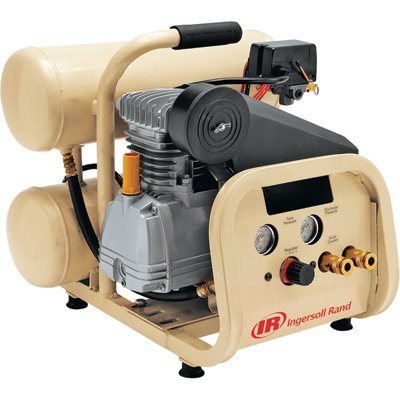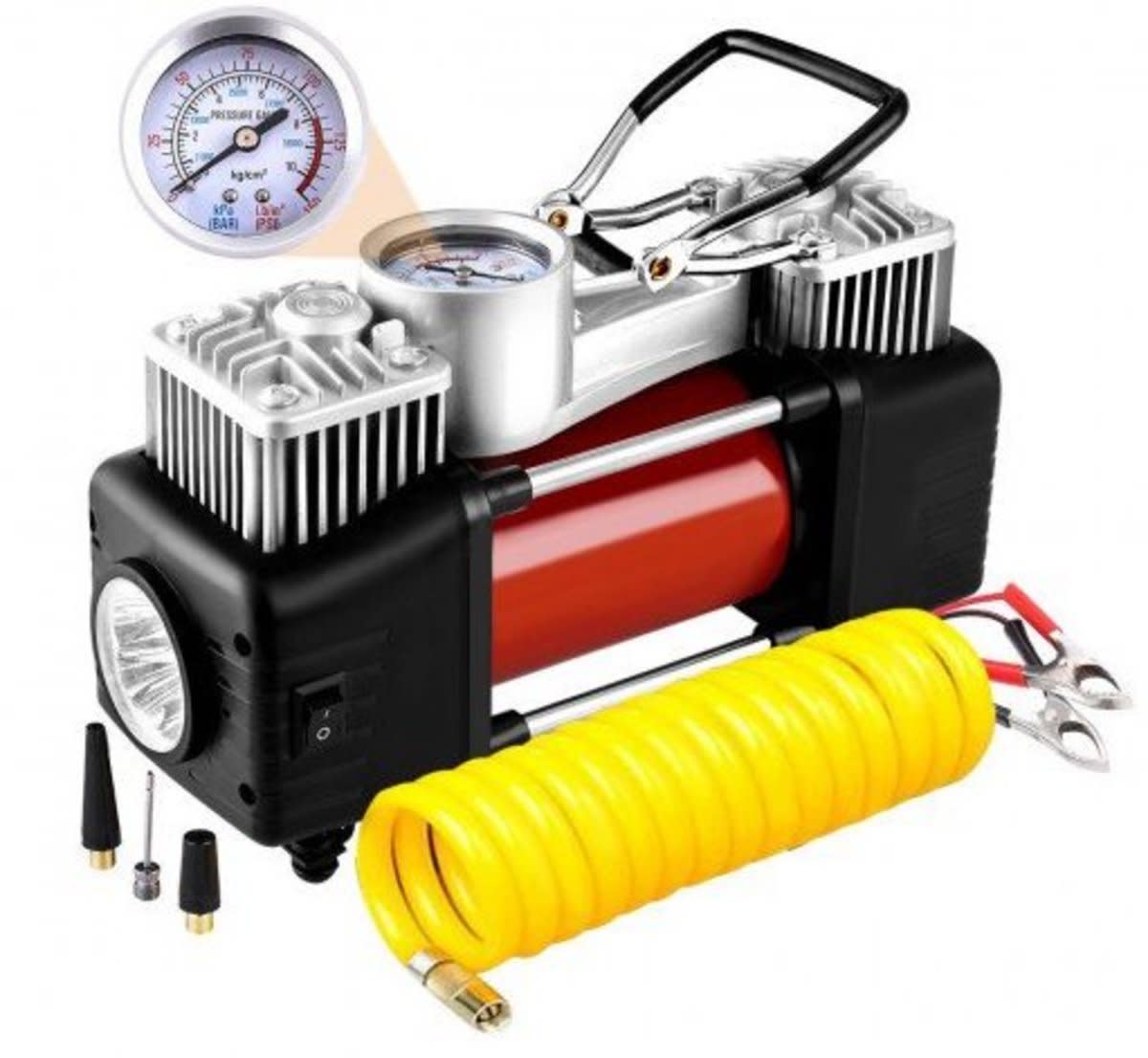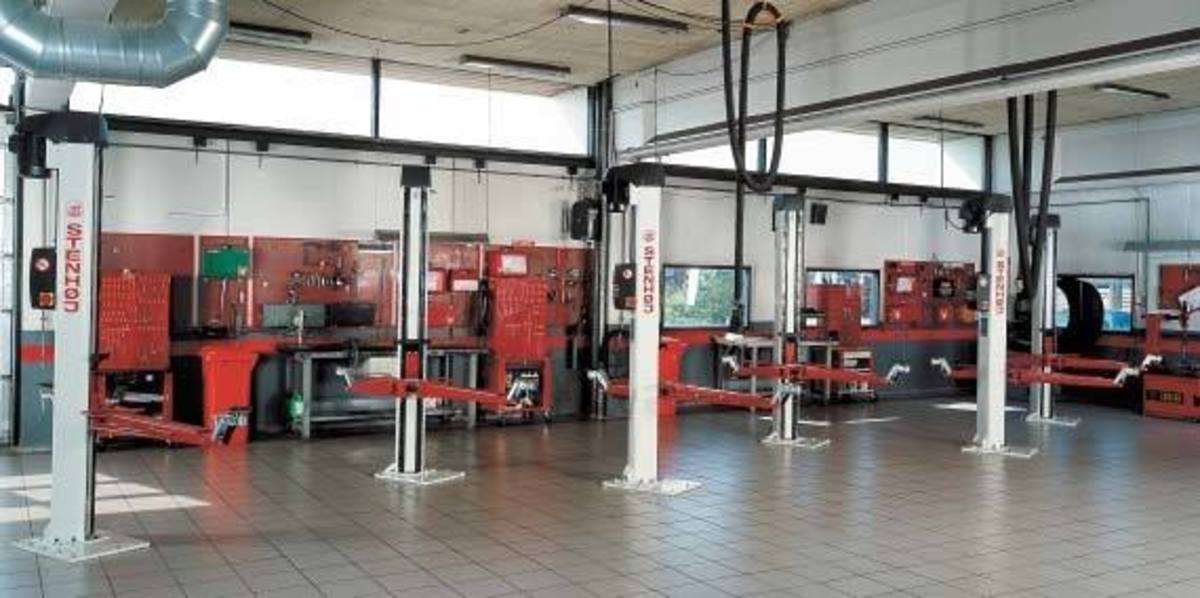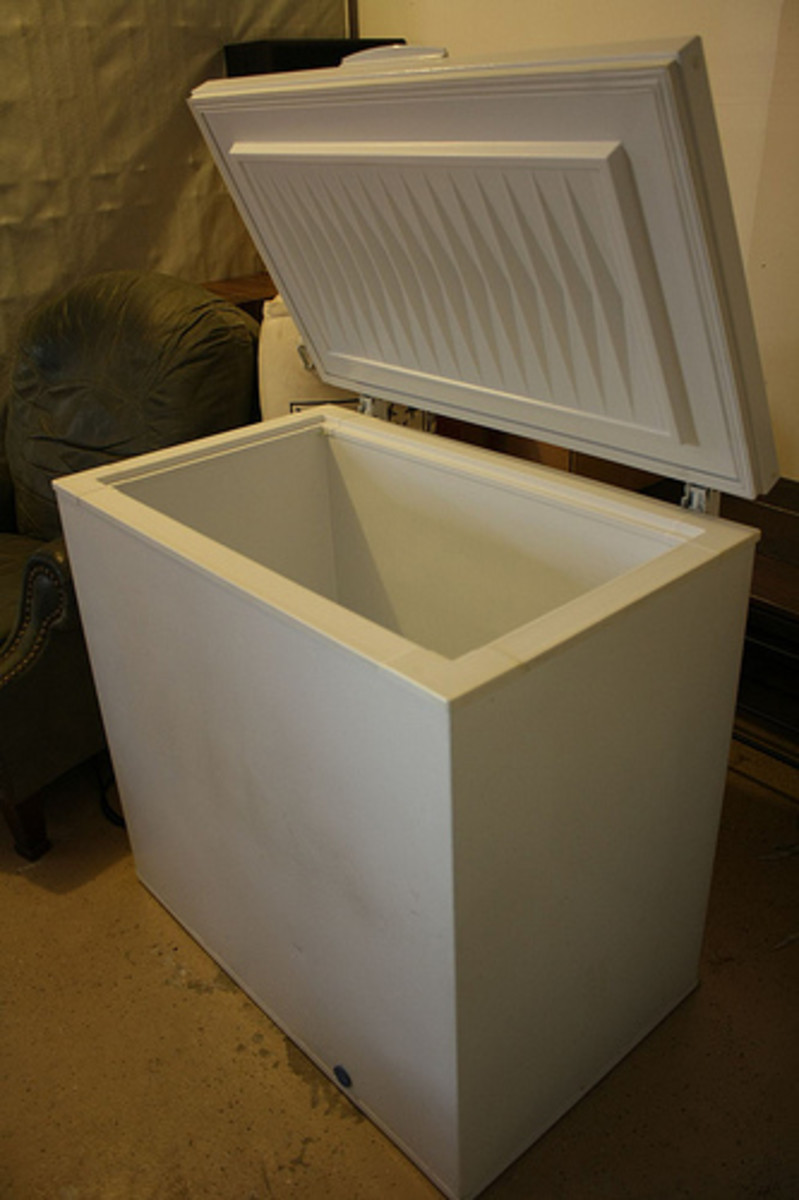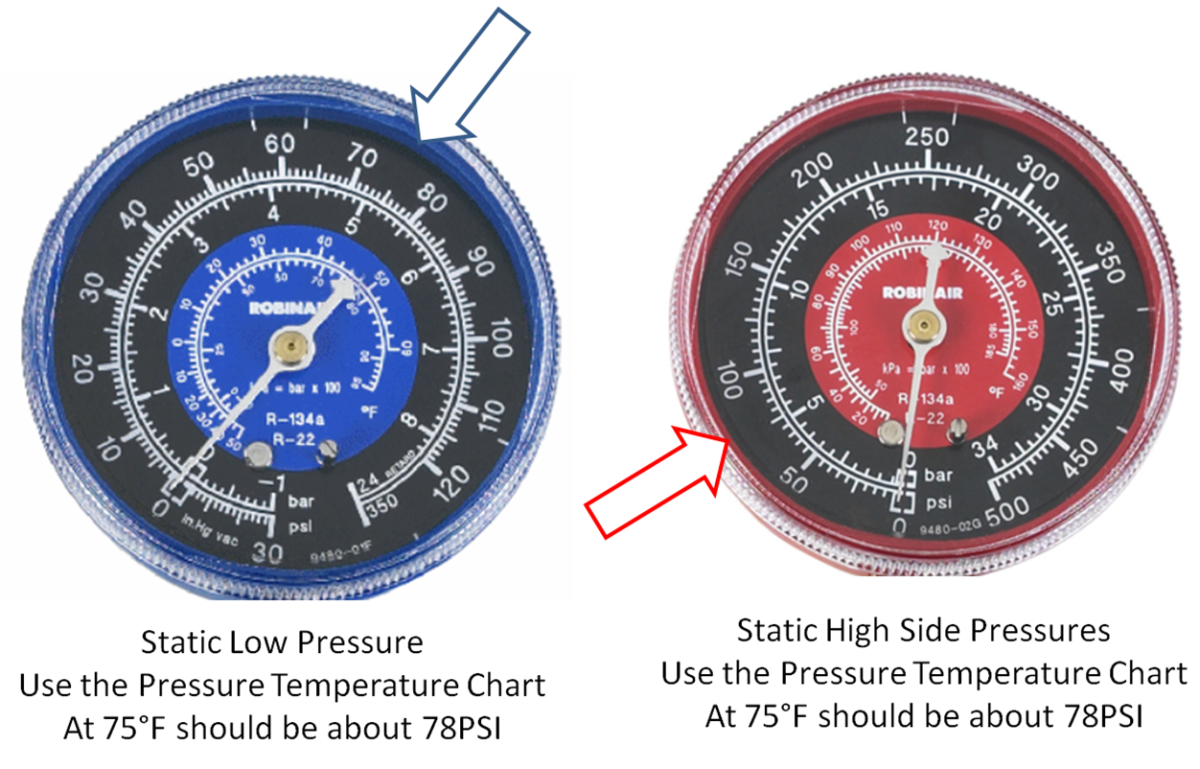Choosing the Right Air Compressor
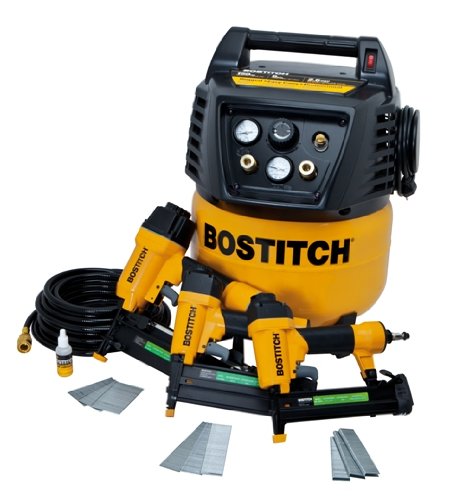
Industrial or Home Use?
Although you would expect size to be the deciding factor, many of the more expensive models have much superior components that will provide the durability and reliability that regular use in an industrial environment would demand. Having said that, many of the domestic models are of an excellent quality and are perfect for use in and around the house.
Identify the Uses for your Compressor
As with most power tools, there are many different types, makes and models of air compressors that you can choose from. To make sure you choose the best one that is most suited to your needs, there are many factors to consider that will influence your purchase. The first thing you should do is to decide what exactly you intend to use the compressor for. For example do you just need a simple model for inflating car tires, or do you plan on using it for various carpentry air tools, or mechanic's air tools such as pneumatic impact wrenches.
Try to decide what tools you wish to operate, whether it will be indoors or outdoors, whether portability is high on your agenda, and how many tools need to be operated simultaneously. It goes without saying that industrial premises or garages will need a compressor with a bigger air capacity to be able to meet all of their air requirements, whereas a home user is probably only going to be using one air tool at a time.
Please find a summary of the different factors below with examples of what we consider to be some of the best out there.
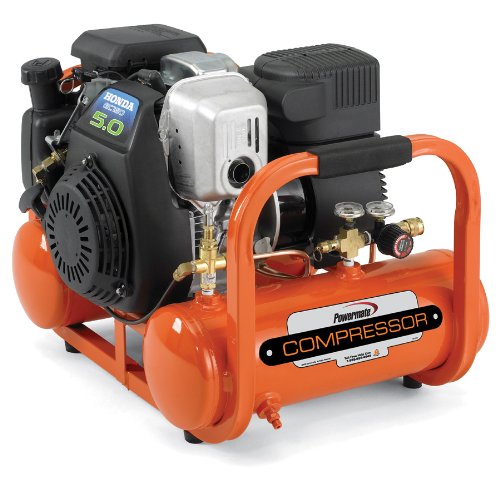
Gas or Electric?
One of the primary decisions to be made is whether you want a gas / petrol powered air compressor, or if one powered by an electric motor would be more suited to your requirements. Both different types have their advantages, and also their disadvantages.
Advantages of Electrically Powered Compressors
Air compressors that utilise electric motors are generally much quieter than their engine powered counterparts. Additionally they are much cleaner and don't emit poisonous exhaust fumes, meaning that you can use them indoors without worrying about having to have adequate ventilation / masks. On the other hand, you have to be within reach of a 110 / 240V power socket, and a gas-powered one would allow you to run it anywhere, so long as you have a can of gas.
For the reasons above compressors with engines are more popular with builders and tradesmen, as they can be used on-site where electrical power might not be available.
In terms of capacity, there isn't much difference between the two types, as you can get bigger engines and also bigger electric motors if you need a greater air capacity.
How to Choose an Air Compressor
Size Matters
As mentioned earlier, you should think about how you intend using the compressor to determine what capacity or size of tank you need. The air demands of different tools varies significantly, for example simpler types (such as nail guns etc..) only require intermittent use, and don't have very high flow requirements. On the other hand, pneumatic grinders / sanders will require a continuous flow of air.
If you're a home user then you'll probably only be using one tool at a time, in comparison to industrial units perhaps having many people all using air tools simultaneously. Tank capacity for small home-based units ranges from around 1-10 gallons of air, and with an increase in size also comes an increase in size of the unit, and an increase in weight. Buying a compressor is a trade-off between getting the maximum size to suit your needs, whilst still keeping it portable (if that's important to you), and staying within your budget requirements.
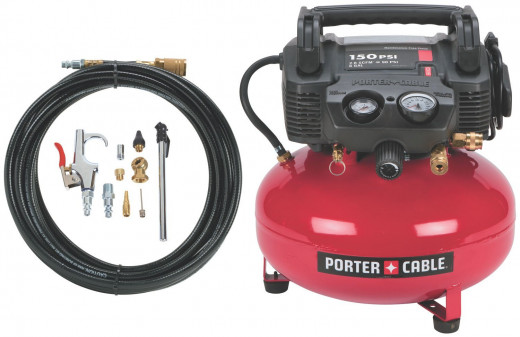
Oil-Lubricated or Oil-Free?
Air compressors can be quite complex tools, and need a bit of maintenance TLC to keep in tip top working order. Some require more maintenance than others however, specifically the ones that are oil lubricated. These tend to be the more advanced models, as oil lubrication can reduce the volume of the unit significantly, meaning they are usually a lot quieter indoors. One of the other major benefits attested to oil filled compressors is that they are a lot more durable and long-lasting. As with a car, the oil helps to keep everything running smoothly and stops the pistons and moving parts from wearing away.
In contrast if you are only after a compressor for general and occasional use then an oil-free version might be your best choice. You don't have to refill these with oil at regular intervals, and so don't have to worry about sticking to any kind of service schedule. Typically simpler and less expensive domestic models are the ones that are oil-free.
A Few Compressors We Recommend
The table below shows some of the top air compressors, most of which are electrically powered. Of course there are also the gas powered ones available, and also ones designed for 12V car sockets. Most of the ones below can be plugged into household electrics, with the exception of the Ingersoll Rand one which has a gas engine.
Whether or not you choose to buy your compressor from Amazon or from a local hardware store, it would be worthwhile checking out the reviews and star ratings of the various compressors on Amazon itself.
Make & Model
| Tank Capacity
| Approx. Price
|
|---|---|---|
Porter Cable C2002-WK
| 6 Gallon
| $117
|
Makita MAC700
| 2.6 Gallon
| $219
|
Ingersoll Rand P1IU-A9
| 4 Gallon
| $299
|
Bostitch BTFP12237
| 6 Gallon
| $256
|
